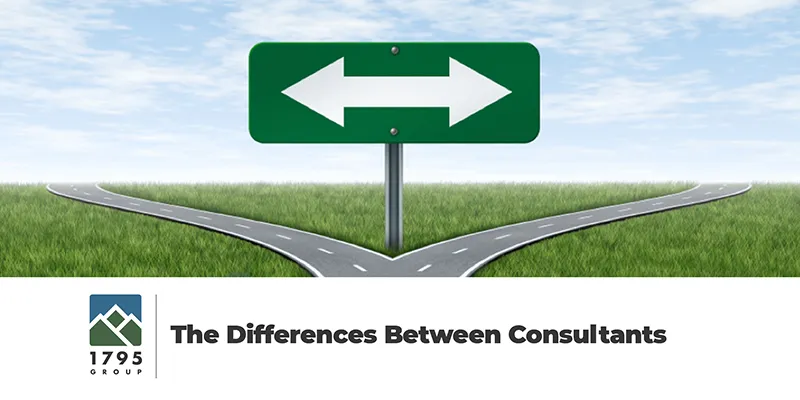Summary
This post describes the major differences between consultants and the questions you should ask of those that you interview.
Major Differences Between Consultants
Selecting among consultants is not easy. You must be careful when choosing a consultant. There are major differences between them. Selecting the “wrong” consultant leads to wasted money, time, and effort. In contrast, selecting the “right” consultant leads to much wisdom, diversified help, technical assistance, reliable and valid results, and peer-reviewed presentations and publications – all things that help you.
The 1795 Group Beliefs in Scientific Rigor
We believe in creating data collection instruments that are culturally acceptable, readable, valid, and reliable. Therefore, we thoroughly pretest and pilot-test our tools to ensure these things. As a result, we have a long and successful history of disseminating the results of our clients’ projects via peer-reviewed conferences and peer-reviewed publications. Doing our clients’ work “right” with scientific rigor enables us to help our clients in this way. That is not true of many other consultants.

The 1795 Group Avoids Garbage In/Garbage Out (GIGO) Situations
A GIGO situation means that the tools used to collect your data have not been pretested nor pilot tested. No one knows if they are valid or reliable. Therefore, the data collected may be “garbage” and the results may be “garbage.” No one knows!
The 1795 Group Uses Theories and Models
Another unique 1795 trait is our frequent use of theories and models. Using a well-accepted and proven theory or model is like using a roadmap on a journey. A theory or model simply tells us what steps are next. One of the reasons that the 1795 Group is so successful in disseminating the results of our client’s work via peer-review (i.e., the litmus test for quality) is that we know how to use theories and models.

You Get What You Pay For
My deceased father (Clyde R. Jordan) pictured above, was always fond of saying, you get what you pay for. Even though he was a blue-collar factory worker, and our family never had an abundance of wealth, he believed in and practiced this axiom.
When hiring third party consultants, this axiom is also true. For example, did you know that money often dictates the study design? A cross-sectional design (a snapshot in time) is much less expensive than one that requires the researchers/evaluators to follow a group into the future for a longer, period (i.e., a prospective, longitudinal, cohort study).
How To Select the Best Consultant
We at the 1795 Group fully recognize the challenge in selecting the best consultant to meet your needs. Therefore, we recommend that you thoroughly interview each consulting group that you are considering.
Always choose a consultant who is formally educated and trained in the skills that you need, has experience in doing what needs to be done, and has an excellent history and references. Ask!
We Recommend that You Ask These Questions
1) Describe your formal education, training, and experience in the services that we are discussing.
2) In addition to the services that we are discussing, what benefits would your consultants provide to us?
3) How many peer-reviewed presentations have you done using data from past clients? Were they local, state-wide, regional, or national?
4) How many peer-reviewed publications have you earned from past client’s data?
5) How many grant applications and of what dollar value have you won for clients in the past?
6) How many grant-funded programs or services and of what value have you managed for clients in the past? Explain how you managed these grants.
7) How many and different type of events have you planned/managed for clients?
8) What would be the key dependent and independent variables for our study?
9) What type of study design would you use for our application? Why?
10) How would you ensure that your data collection instruments are valid and reliable?
11) What type of statistical tests do you believe would be best in our situation?
12) Do you recommend that we use a control or comparison group? Explain.
13)Explain how you will triangulate our data to get closer to the “truth?”
Call or Email Today!
Our team has the education, skills, and successful track record to help you. When you select us as your partner, you receive all the benefits that we offer. Check out our references on our website. See what many of our past clients think of us.
Call or email today to set up your appointment so we can brainstorm ways to collaborate.


